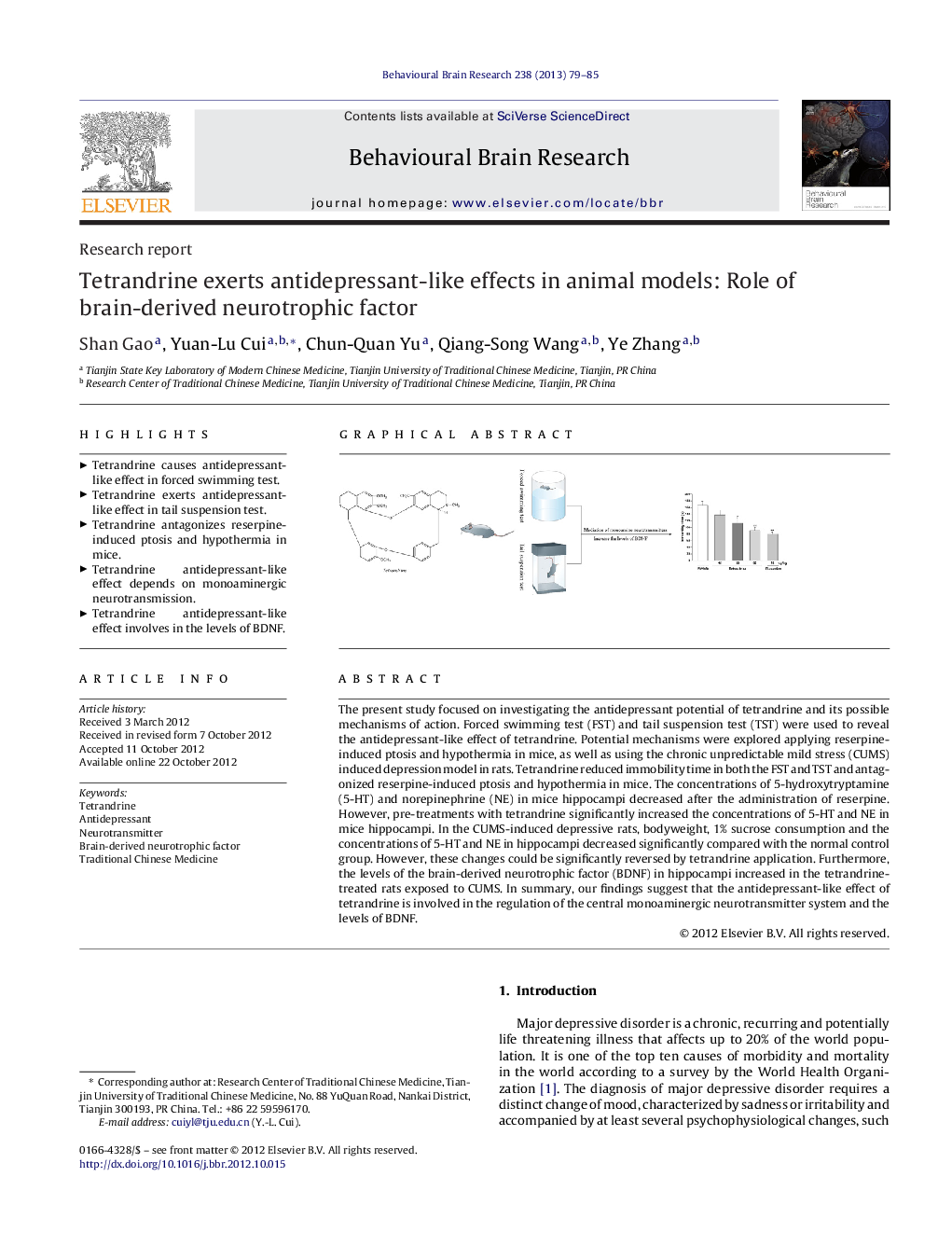| Article ID | Journal | Published Year | Pages | File Type |
|---|---|---|---|---|
| 4312911 | Behavioural Brain Research | 2013 | 7 Pages |
The present study focused on investigating the antidepressant potential of tetrandrine and its possible mechanisms of action. Forced swimming test (FST) and tail suspension test (TST) were used to reveal the antidepressant-like effect of tetrandrine. Potential mechanisms were explored applying reserpine-induced ptosis and hypothermia in mice, as well as using the chronic unpredictable mild stress (CUMS) induced depression model in rats. Tetrandrine reduced immobility time in both the FST and TST and antagonized reserpine-induced ptosis and hypothermia in mice. The concentrations of 5-hydroxytryptamine (5-HT) and norepinephrine (NE) in mice hippocampi decreased after the administration of reserpine. However, pre-treatments with tetrandrine significantly increased the concentrations of 5-HT and NE in mice hippocampi. In the CUMS-induced depressive rats, bodyweight, 1% sucrose consumption and the concentrations of 5-HT and NE in hippocampi decreased significantly compared with the normal control group. However, these changes could be significantly reversed by tetrandrine application. Furthermore, the levels of the brain-derived neurotrophic factor (BDNF) in hippocampi increased in the tetrandrine-treated rats exposed to CUMS. In summary, our findings suggest that the antidepressant-like effect of tetrandrine is involved in the regulation of the central monoaminergic neurotransmitter system and the levels of BDNF.
Graphical abstractFigure optionsDownload full-size imageDownload high-quality image (92 K)Download as PowerPoint slideHighlights► Tetrandrine causes antidepressant-like effect in forced swimming test. ► Tetrandrine exerts antidepressant-like effect in tail suspension test. ► Tetrandrine antagonizes reserpine-induced ptosis and hypothermia in mice. ► Tetrandrine antidepressant-like effect depends on monoaminergic neurotransmission. ► Tetrandrine antidepressant-like effect involves in the levels of BDNF.
